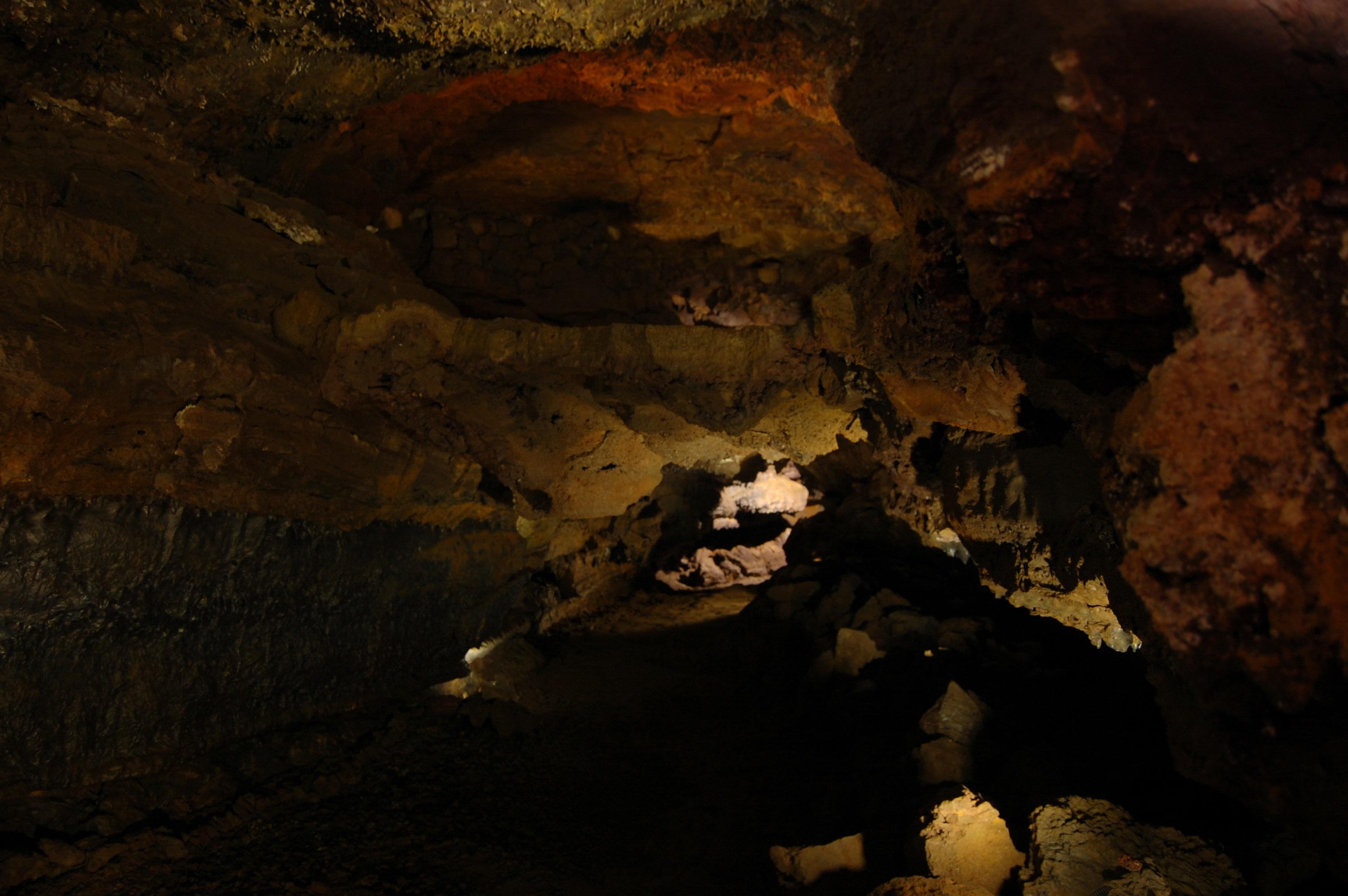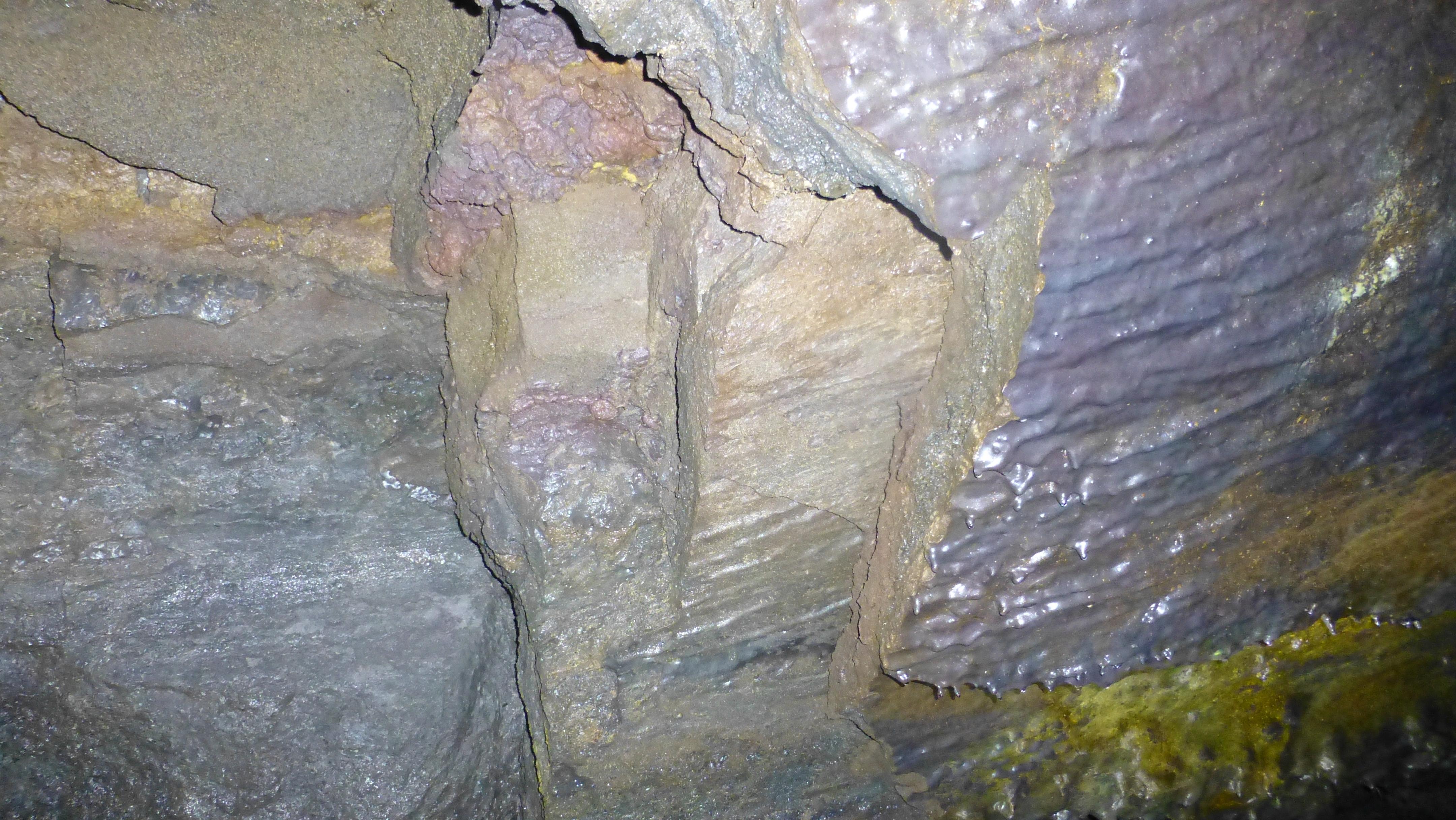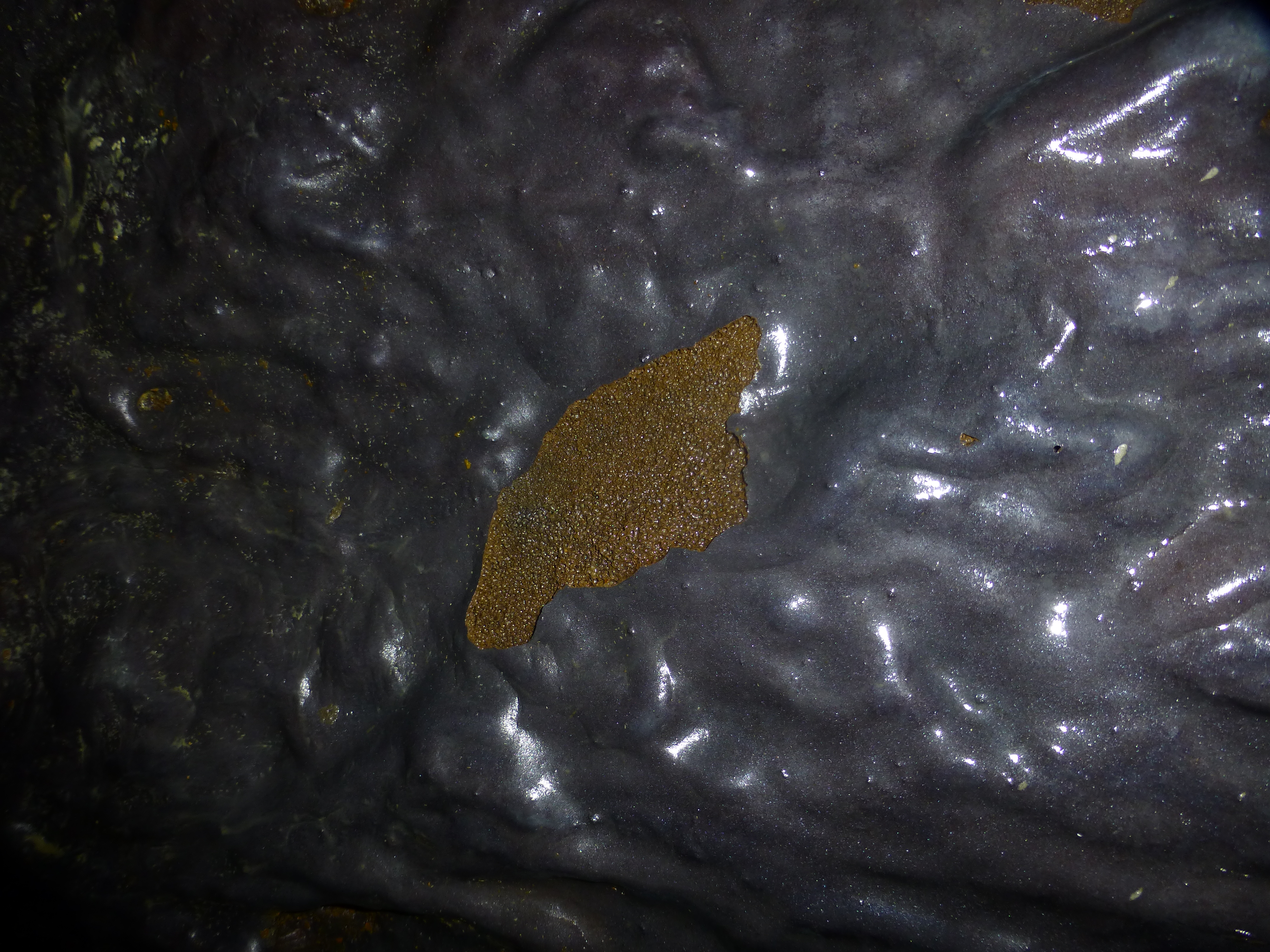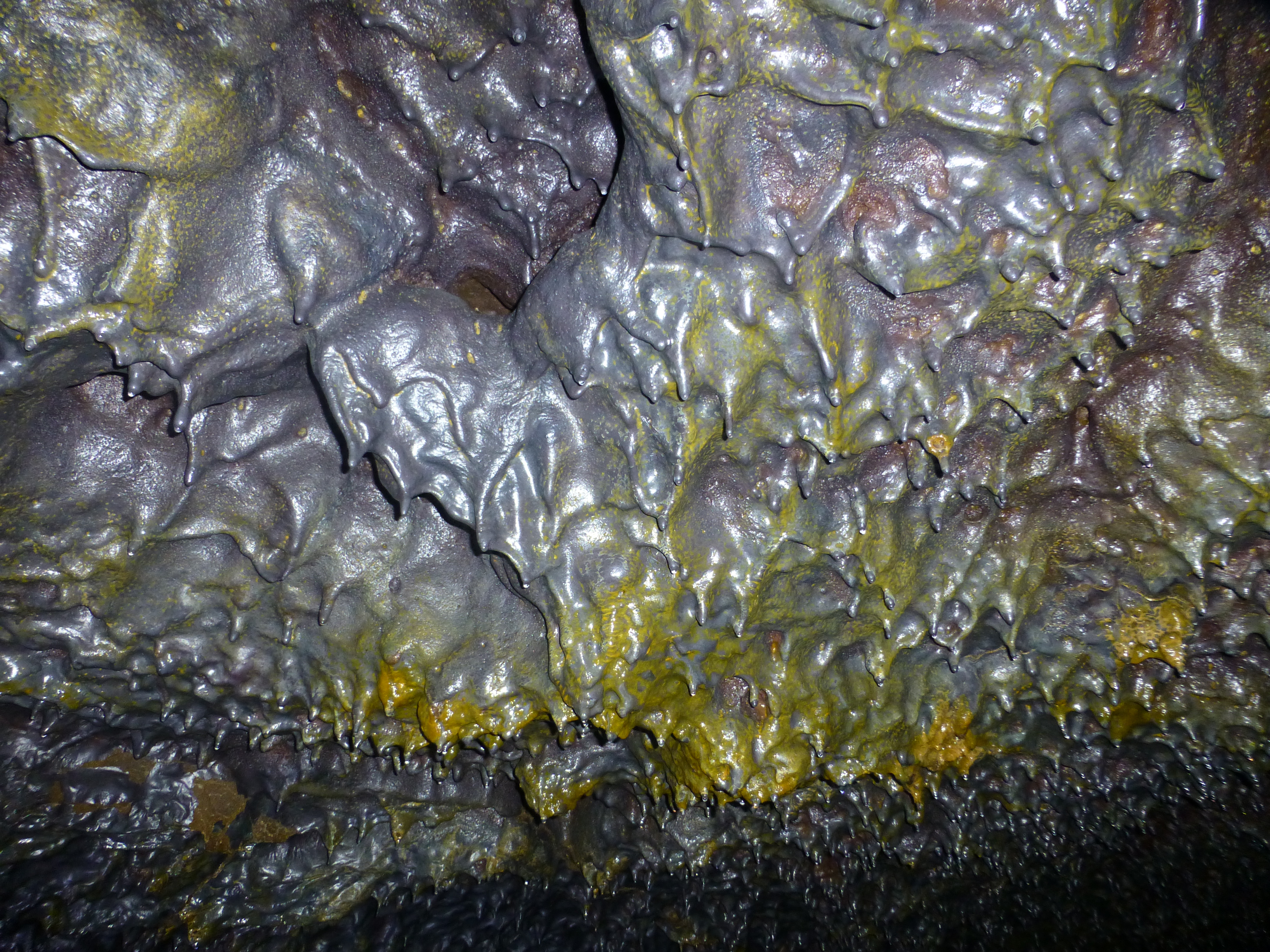Carvão Cave – São Miguel Island
The Carvão Cave is a geological formation of volcanic origin. This Natural Monument is the largest known lava tunnel on São Miguel Island, measuring 1912 meters long and consisting of four sections (Paim, Tobacco Dryers, João do Rego, and José Bensaúde).
 (C) Amigos dos Açores
(C) Amigos dos Açores
The Carvão Cave is of great geological importance. Within this volcanic cavity, there is a wide variety of structures, such as lava stalactites and stalagmites, secondary stalactites, ledges or benches, lava bridges, striated walls, lava balls, gas bubbles, and overlapping tunnels, among others.
You can visit the cave through the Visitor Center of Carvão Cave (more info below), located in the Paim section. Visitors can explore this volcanic tunnel of great relevance and interest through a guided tour.
Índice de conteúdos
History
Carvão Cave is located in the municipality of Ponta Delgada and consists of four zones of different dimensions: Paim Section (880.2 m), Tobacco Dryers Section (701.8 m), João do Rego Section (287.4 m), and José Bensaúde Section (42.7 m). However, ancient documents indicate that the length may be much greater than currently known, possibly reaching up to 5 kilometers, extending from the coastline to the lava flow center that formed it, near Serra Gorda in Arrifes.

The Carvão Cave is located in a geologically defined area known as the Picos Volcanic Complex, which is around 50,000 years old and consists of about 250 volcanic cones.
The cave has a Holocene age, meaning it belongs to the most recent geological era, with an age between 5,000 and 12,000 years. Due to its location, size, and variety of geological structures, along with the volcanic phenomena associated with it, it was classified as a Regional Natural Monument in 2005.
When visiting the cave, you can notice the structural differences between the two types of stalactites present. The lava formations have a more conical shape and a smooth surface, resulting from the solidification of lava droplets. In contrast, the secondary stalactites have irregular shapes, a whitish color, and are very fragile; they result from the alteration and accumulation of water that trickles down from the surface and becomes infiltrated in the cave.
Characteristics
The Carvão Cave has an average height of between 2 and 3 meters, but in some places, it can exceed 5 meters. Its width exceeds 10 meters.

The ceiling of the cave features many stalactites from both lava formations and secondary formations. The accumulation of water also causes a phenomenon of oxidation in the basalt rocks that form the cave, making them appear reddish in some areas.

Another characteristic found inside the cave are the striations resulting from the flow of lava, primarily located in concave areas. Along the path, you can see various phenomena, such as ledges or benches on the side walls.
Location on the Map
Rua do Paim – 2ª Circular
Ponta Delgada
Hours
Open every day from 10:00 AM to 12:30 PM and from 2:00 PM to 6:00 PM
Guided Tours – Reservation Recommended
Limited number of visitors
10:30 AM – 11:30 AM – 2:30 PM – 3:30 PM – 4:30 PM
Expanded Guided Tours
(by appointment: 2-4 people)
Price
- Adults – €5.00
- Seniors (>65 years) – €3.00
- Students (13 to 18 years) – €3.00
- Students (>18 years) – €3.00 (with student card)
- Children (6 to 12 years) – €1.50
- Children up to 5 years – Free
- Members of Amigos dos Açores – Free
- Expanded Guided Tours – €20.00
Video
The Carvão Cave is a very important geological formation for the Azores Geopark. It has unique characteristics that differentiate it from others of its kind and attracts many visitors on São Miguel Island. It is a fascinating experience that is worth undertaking when visiting the island.
- 🔒 Travel insurance with 15% discount for the Azores or another destination Click here to simulate >
- 🛫 Looking for trips to the Azores? See these promotions >
- 🚘 Rent a car in the Azores? The best rent-a-car >
- 🧗🏼♂️ Activities and Experiences during your stay? Check it out here >
- 🐳 See Whales and Dolphins? Book now online >
- ❌ Have you had a canceled or delayed flight in the last 3 years? Receive your compensation here >

